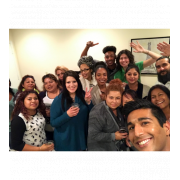37,424 Trabajos
Destacado Trabajar En Los Estados Unidos
04/23/2024,
305 Works
Caracas, Distrito Capital, Venezuela
Work at Home
Destacado Se Busca Una Asistente En Línea Ahora
04/23/2024,
SlimFit Health
Miami, Florida, EE. UU.
Work at Home
Destacado Asistente Virtual Necesario Ahora
04/23/2024,
SlimFit Health
Miami, Florida, EE. UU.
Work at Home
Destacado Asistente Virtual Necesario Ahora
04/23/2024,
SlimFit Health
Miami, Florida, EE. UU.
Work at Home

